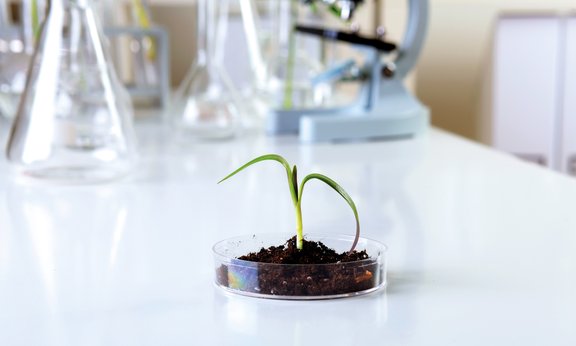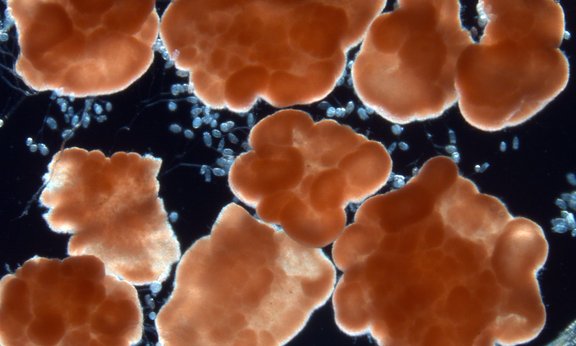Master’s Programme Molecular Cell and Development Biology
Are you interested in cell biology, immunology, developmental biology, the biology of ageing and molecular biology?
The students of the Master’s Degree Programme in Molecular Cell and Development Biology acquire sound knowledge in the fields of molecular biology, cell biology and developmental biology. The main parts of the programme are made up of practical work in labs and learning to apply state-of-the-art molecular methods and techniques.
Study Code
UC 066 834
FAQ
Graduates possess highly specialized knowledge in the fields of molecular biology, developmental biology, cellular biology and live cell imaging. They are able to demonstrate their abilities in the fields of biology and biomedicine at the intersections of biochemistry and molecular biology through their capacity to formulate and susbtantiate arguments scientifically and to find innovative solutions to problems.
The goal of this interdisciplinary master's programme is to convey modern methods and concepts of molecular biology and cellular and development biology and their application in current biological-zoological and biomedical research.
The programme is based on elective practice-oriented courses from the fields of developmental biology and cellular biology, including aspects of biomedicine and is organized by the Faculty of Biology in cooperation with the Medical University.
Teaching is research-oriented and based on fundamental questions of the implementation of genomic information into biological processes.
The research focus of the participating scientists and of the programme as a whole is on signal transduction and gene regulation in development, stem cells and regeneration of tissues, and functional and structural genome evolution.
Career opportunities may include:
- research in molecular biology and teaching activities in all fields of biology,
- basic research in biomedicine,
- scientific activities in companies (e.g. in pharmaceutics, medicine, toxicology, bioanalytics),
- scientific activities in public and administrative institutions (e.g. in medicine, health care, food control, forensics, promotion of scientific research),
- further activities in areas overlapping with other disciplines (e.g. journalism) in combination with additonal qualifications.
The master's programme also prepares students for doctoral studies.
Graduates tracking: Shows which occupational fields students enter after graduation
Faculty of Biology Examination Office Information for students with disabilities
Curriculum
From the field
No results
Keine aktuellen Einträge vorhanden.
Related studies

Atmospheric Sciences (Master)
Master of Science

Chemical Engineering (Master)
Diplom-Ingenieur*in



















